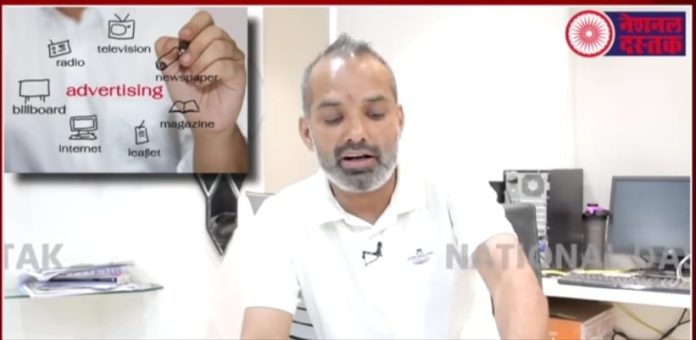New Delhi, April 16: The recent actions taken against independent media outlets such as Bolta Hindustan and now National Dastak by the Indian government have raised concerns about media freedom and censorship. On April 3, 2024, National Dastak, a Hindi news channel recognized for its coverage of issues affecting marginalized communities, received notification from YouTube stating that their channel was being directed by the central government to be blocked. This move follows a similar action against Bolta Hindustan, which was temporarily banned by the government.
National Dastak, led by editor Shambhu Kumar Singh and boasting a significant following of over 9.4 million subscribers, has been a vocal supporter of the rights of Dalits, Adivasis, women, children, and other marginalized groups. The channel’s emphasis on shedding light on issues often overlooked by mainstream media may have attracted government attention, leading to its censorship.
The government’s use of the Information Technology Act, 2021, to justify these actions has sparked worries about the potential misuse of legal provisions to silence dissenting voices. Section 69 of the IT Act empowers authorities to remove content that poses a threat to national security, sovereignty, or public order. However, the lack of transparency regarding specific violations alleged against these channels has prompted questions about the justification for such censorship.
This development reflects a broader trend of increasing constraints on media freedom in India. The government’s actions against National Dastak and Bolta Hindustan occur against the backdrop of mounting concerns about press freedom, as evidenced by recent events like the suspension of BBC India’s operations.
Last year, BBC India faced scrutiny and raids by the Income Tax Department following the broadcast of a documentary on the Gujarat genocide. This pressure ultimately led BBC India to transfer its publishing license to a private entity, marking a significant change in its operations.
The overall environment for media in India has deteriorated, as demonstrated by the country’s decline in the Press Freedom Index, where it fell by 11 points to 161 out of 180 countries. This decline highlights the difficulties encountered by journalists and media organizations in the country, including censorship, legal threats, and regulatory pressures.
The crackdown on YouTube channels such as National Dastak and Bolta Hindustan underscores the urgent need to protect media freedom and ensure that independent voices can operate without fear of reprisal. As the media landscape continues to evolve, maintaining a vibrant and diverse media ecosystem is crucial for upholding democratic principles and fostering informed public discourse.




